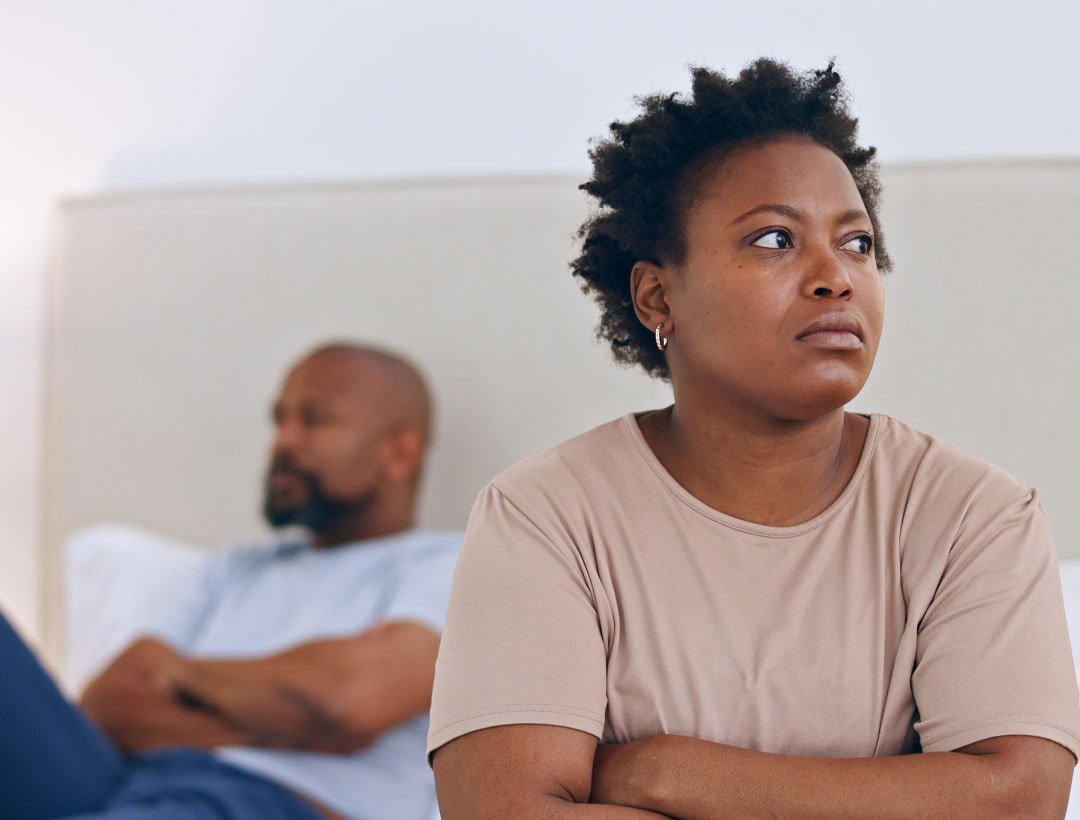"Not Tonight, Honey": Navigating the Ebb and Flow of Desire in Relationships
Ever heard a friend say, "My partner could have sex every day—it’s just too much for me"? Or maybe you've felt something like, "Why don't I ever feel like having sex? Is something wrong with me?" You’re not alone. These are common expressions of what's known as desire discrepancy, a term you might not hear every day, but definitely a topic that touches many.
What is Desire Discrepancy?
Desire discrepancy pops up in relationships when one partner's level of sexual desire isn’t quite in sync with the other’s. Maybe one of you is ready to go all the time, while the other might rarely feel the urge. Or perhaps the types of desires differ–some desires can be reactionary, meaning that you need to start to feel desire, and other desires are spontaneous, meaning that the desire just pops up. This mismatch isn't just about frequency; it's influenced by a mix of biological, psychological, and social factors, and yes, even the setting and mood play a big part. It's a super common issue—actually, research shows over 80% of couples experience this mismatch at some point. While it's perfectly normal for desires to vary over time, it can bring a fair bit of stress and tension if not handled with care.
How Can You Tackle Desire Discrepancy?
Managing desire differences in a relationship means having open hearts and open minds. Here’s how you can address it:
Open Communication: The cornerstone of solving this, or any relationship challenge, really, is talking openly and kindly. It also means being vulnerable with your partner. Both of you should feel comfortable sharing your feelings about what you want sexually, without fear of judgment. It’s about finding out what each of you needs and exploring how those needs can be met happily for both of you.
Education and Self-Awareness: Learning about what influences sexual desire can often make a big difference. This could be anything from stress and health issues to how satisfied you feel in other areas of your life. Getting to know your own body and desires better, perhaps through some personal reflection or therapy, is also incredibly valuable.
Compromise and Negotiation: It’s all about finding that sweet spot where both partners feel their needs are important. This might mean talking through how often you engage in sexual activities or exploring other ways to be intimate that make both of you feel good. The key is that these compromises are made freely and kindly—pressure is the fastest way to douse any spark.
Enhancing Intimacy: Boosting non-sexual intimacy can also help bridge the desire gap. Think quality time together, affectionate touches that aren’t necessarily sexual (like cuddling up on the couch), and deepening your emotional connection.
Seeking Professional Help: Sometimes it's tough to tackle these things alone. Reaching out to a relationship therapist can offer some new perspectives and tools. When I work with couples facing these issues, we delve into all sorts of factors that could be influencing desire, including any pressure one might feel from their partner, whether that’s spoken or unspoken.
Mindfulness and Emotional Presence: Practices like mindfulness not only reduce anxiety around sexual interactions but can also help you both be more present and connected. This can improve both your desire and enjoyment of your intimate moments.
Desire discrepancy doesn’t have to pull you apart; it doesn't mean your relationship is broken. With a considerate approach and lots of respect for each other, you can navigate through this together. Remember, fluctuations in desire are perfectly normal and being gentle and understanding about this can help keep your relationship strong and connected. Make sure you approach this topic—and any solutions—with lots of love and care, ensuring both partners feel heard, respected, and deeply valued.

